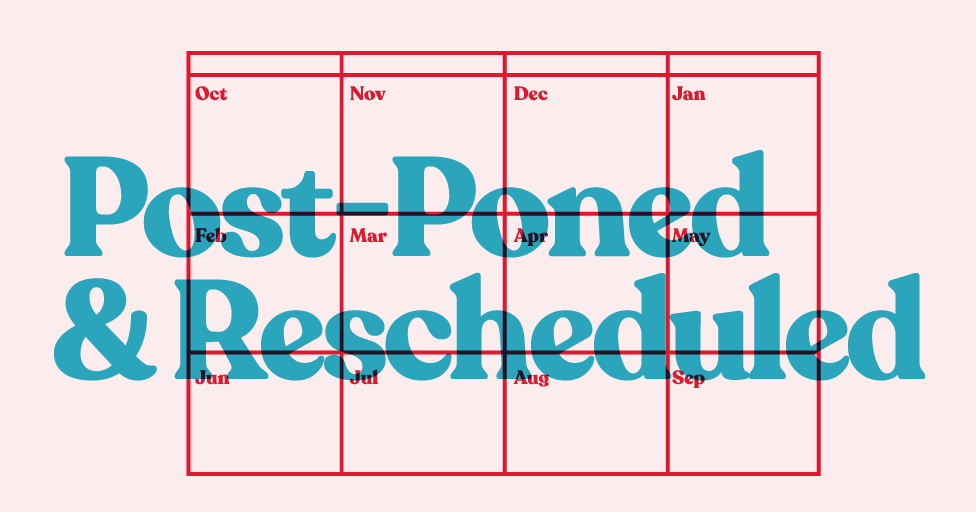
As healthcare marketers, we have seen several clients struggle to maintain service line volume in the midst of COVID-19. This is not unique to just our client set; it is a trend taking place around the world. While the beginning of the pandemic saw healthcare systems overloaded with patients—predominantly critically ill COVID-19 patients—the aftermath has left these same hospitals nearly empty and struggling significantly.
At MBB, we wanted to identify why exactly patients were avoiding hospitals and clinics (besides the obvious answer) and what it would take to bring them back. We conducted a small healthcare survey in the Kansas City area to better understand the concerns that patients faced in order to better help healthcare systems address them.
Here are our four key takeaways.
Delayed care depends on the type of care.
According to the survey, nearly 34% of respondents have postponed care in the midst of the pandemic. Of those individuals, the majority of the postponed appointments were well visits and dental exams. Other appointments that were delayed included ophthalmology, dermatology, allergy, and cardiology.
Of the patients who postponed care, 47% of the individuals said the reason for delaying or canceling the appointment was because they felt the healthcare visit was unnecessary. For this nearly 50% of respondents, the most common types of “unnecessary” appointments were primary care well visits, dental exams, eye exams, and dermatology appointments.
One area of healthcare that individuals did not admit to postponing or avoiding was emergency department visits. 84% of respondents said they were likely or very likely to visit the emergency department in case of an emergency. However, individuals did perceive visiting the emergency department to be riskier than routine care, seeing a specialist, or an elective procedure.
Patients are delaying care, but it may not be their fault.
The main reason that patients are delaying care is the care is not perceived to be necessary. Another obvious reason is a simple response of “fear of being exposed.” Interestingly, those two responses are the first and third most common response, respectively. The second most common reason for postponing care is the screenings or protocols put in place by the doctor’s office. Several individuals stated that they rescheduled appointments either because they didn’t pass the doctor’s office screenings or because the doctor canceled their appointment. Another challenge that patients are experiencing is having a healthcare provider who is not able to fit them into their schedule. Many providers paused seeing patients at the height of the pandemic, which caused a backup in their scheduling.
Patients are blaming the providers…and other patients.
Outside of the general risk of COVID-19 exposure, many respondents’ biggest concern with visiting a provider was the cleanliness and safety protocols of the healthcare systems. Concerns such as germs on the door handles, germs in the waiting room, providers who had previously seen sick patients, traffic in and out of the facility, and healthcare workers being asymptomatic or not tested at all/often enough were prominent themes.
However, many respondents were not as worried about the health system’s protocols as much as they were the other patients not abiding by the rules in place. Several respondents said that it’s not the clinics or hospital they are worried about but the other patients they will see there that won’t social distance or wear a mask. While there is a fear of a patient concealing symptoms, they also fear patients who might be positive but asymptomatic.
Postponing minor care is a major concern.
When asked what determines whether or not a respondent visits a healthcare facility, the overwhelming response was necessity and/or urgency of the visit. Individuals are postponing maintenance care that may not feel critical when they are healthy. However, it is those appointments that prevent health issues from arising or even diagnose and treat serious concerns.
The major concern with patients putting off care due to COVID-19, regardless of the concern, is that the pandemic is staying around longer than anyone could have anticipated. Many are concerned that this will have long-term impacts on patients and the health system—impacts that could last long after the pandemic is over.
As healthcare marketers, it is our job to help healthcare systems ease patient concerns and communicate safety protocols. However, this survey indicates that there may be more that needs to be done. It is crucial for both providers and patients to understand the long-term implications of postponing care. While patients must make it a priority to be seen despite the ongoing pandemic, providers must go to greater lengths to create the safest environment possible for care. From separating services by location or hours to creating separate entry points, providers must create a healthcare setting that eliminates any fear on behalf of the patient. Many of the changes and communications will feel excessive, but when patients’ longevity is on the line, no length is too extreme.
Subscribe to our newsletter
Get our insights and perspectives delivered to your inbox.


